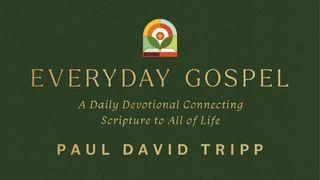The Apostle's Fast in the Ancient FaithSample

Day 9: Temperance - Cultivating Self-Control in the Journey of Faith
As we conclude our journey through the Apostle's Fast, we turn our attention to the virtue of temperance. In a world that often encourages excess, temperance stands as a beacon of moderation and self-control, guiding us toward a life of balance and freedom. Temperance is more than just abstaining from excess; it is a deliberate choice to exercise self-control in all areas of life. In the context of fasting, temperance invites us to resist the allure of indulgence and embrace simplicity and moderation. As we journey through the fast, let us cultivate a spirit of temperance, mindful of the blessings that come from living in harmony with God's will.
"Every athlete exercises self-control in all things. They do it to receive a perishable wreath, but we an imperishable" (1 Corinthians 9:25). St. Paul uses the metaphor of an athlete's discipline to illustrate the Christian call to temperance. Just as athletes undergo rigorous training to win a prize, Christians practice self-control to attain eternal life. This passage challenges us to consider the areas of our lives where we need to exercise more discipline, reminding us that the reward of our temperance is nothing less than the crown of life.
St. Paul's life exemplifies the virtue of temperance. Throughout his missionary journeys, he faced numerous hardships, including shipwrecks, imprisonments, and beatings. Despite these challenges, St. Paul remained disciplined in his devotion to spreading the Gospel. His letters to the early churches often encourage believers to live lives marked by self-control and moderation, reflecting his own commitment to these virtues.
St. Ambrose, Bishop of Milan, one of the great Church Fathers, offered insight on temperance in Letter 37 wrote, "No one is free who is a slave to the body." St. Ambrose understood that true freedom comes from mastering our desires rather than being ruled by them. His teachings encourage us to view temperance not as a restriction, but as a pathway to true liberty.
The life of St. Bartholomew, one of the Twelve Apostles and also known as St. Nathanael, provides a compelling example of temperance. Known for his ascetic lifestyle, St. Bartholomew dedicated himself to prayer, fasting, and the study of Scripture. His disciplined devotion to God inspired many to embrace the Christian faith, demonstrating the evangelistic power of a life lived in temperance.
Temperance is a virtue that touches every aspect of our lives, from the way we eat and drink to the way we speak and act. It calls us to exercise self-control, not as an end in itself, but as a means to grow closer to God and to serve others more effectively. As we practice temperance, we discover the joy of living within the boundaries God has set for us, finding freedom in obedience and fulfillment in moderation.
Temperance is also not merely a personal virtue but a communal witness to the power of the Gospel. As we grow in self-control, we become beacons of light in a world often lost in darkness. May our practice of temperance during this fast and beyond lead us to a deeper relationship with God and a more authentic love for our fellow man, those in faith, and those who are not. Let us walk the path of temperance, guided by the Spirit, toward the freedom and joy that await us in Christ.
Let us pray:
Lord of all wisdom, You have called us to a life of temperance and self-control. As we conclude this fast, grant us the strength to practice moderation in all things. Teach us to discipline our bodies, our minds, and our spirits, that we may be fully devoted to You. May the example of St. Paul, St. Ambrose, and St. Bartholomew inspire us to embrace temperance as a pathway to freedom. Help us to remember that in mastering ourselves, we become more like You, the One who mastered death itself. Amen.
About this Plan

Embark on a 12 day journey through the Apostle's Fast devotional. Explore virtues like love, joy, and peace through Scripture, apostolic lives, and Early Church wisdom. Reflect on each virtue, pray for growth, and draw closer to God.
More
Related plans

Don't Let Doubt Take You Out

Journey With Jesus 365

Everyday Gospel: A Daily Devotional Connecting Scripture to All of Life

The Benefits of Shared Spiritual Goals: How Starting as Friends First Enhances Romantic Relationships

Sound of Heaven: A 6-Day Devotional by Danny Gokey

Mandates for Men: Serve Others

Protect Your Peace

In Her Image: Character Study of the Proverbs 31 Woman

Every Place
